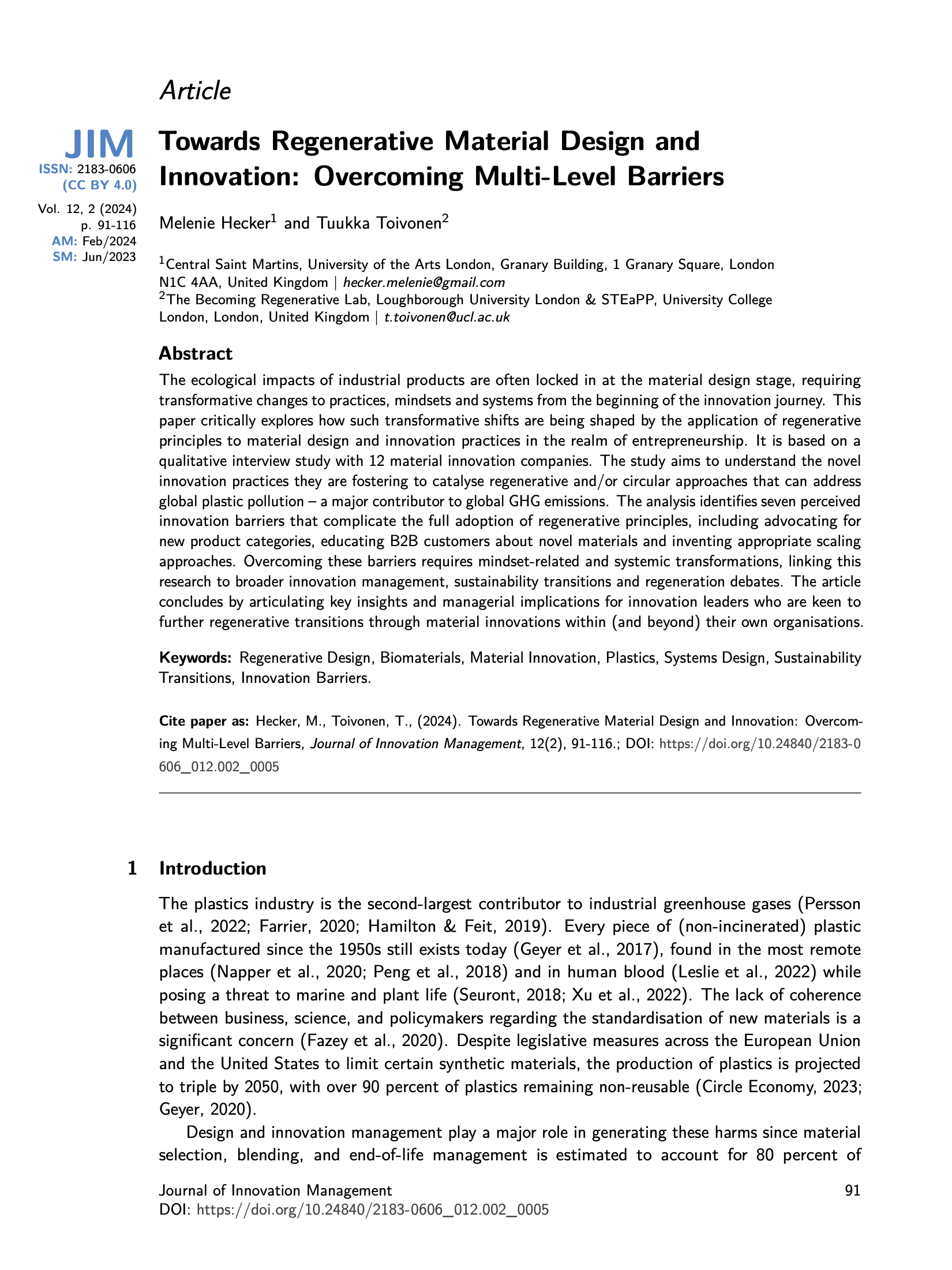Towards Regenerative Material Design and Innovation: Overcoming Multi-Level Barriers
Main Article Content
Abstract
The ecological impacts of industrial products are often locked in at the material design stage, requiring transformative changes to practices, mindsets and systems from the beginning of the innovation journey. This paper critically explores how such transformative shifts are being shaped by the application of regenerative principles to material design and innovation practices in the realm of entrepreneurship. It is based on a qualitative interview study with 12 material innovation companies. The study aims to understand the novel innovation practices they are fostering to catalyse regenerative and/or circular approaches that can address global plastic pollution – a major contributor to global GHG emissions. The analysis identifies seven perceived innovation barriers that complicate the full adoption of regenerative principles, including advocating for new product categories, educating B2B customers about novel materials and inventing appropriate scaling approaches. Overcoming these barriers requires mindset-related and systemic transformations, linking this research to broader innovation management, sustainability transitions and regeneration debates. The article concludes by articulating key insights and managerial implications for innovation leaders who are keen to further regenerative transitions through material innovations within (and beyond) their own organisations.
Article Details
Authors who publish with this journal agree to the following terms:
- Authors retain copyright and grant the journal right of first publication with the work simultaneously licensed under a Creative Commons Attribution License that allows others to share the work with an acknowledgement of the work's authorship and initial publication in this journal.
- Authors are able to enter into separate, additional contractual arrangements for the non-exclusive distribution of the journal's published version of the work (e.g., post it to an institutional repository or publish it in a book), with an acknowledgement of its initial publication in this journal.
- Authors are permitted and encouraged to post their work online (e.g., in institutional repositories or on their website) prior to and during the submission process, as it can lead to productive exchanges, as well as earlier and greater citation of published work (See The Effect of Open Access).

